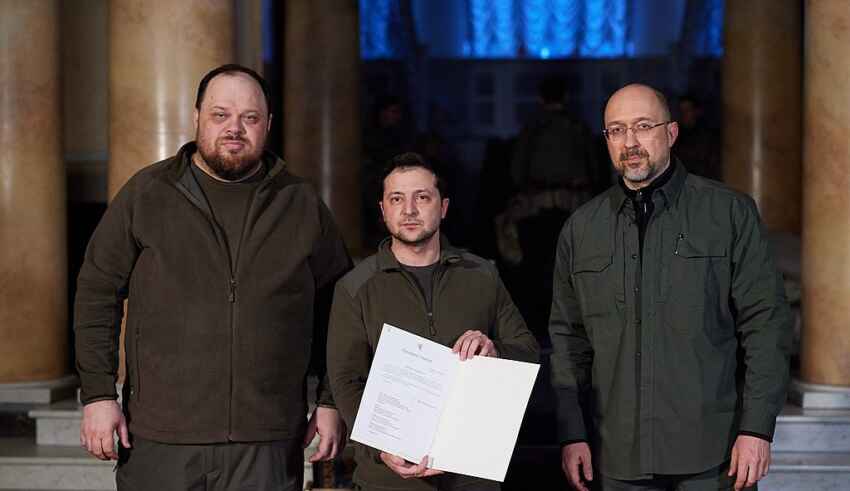
The rise of far-right parties in Europe has been a significant political development in recent years. A variety of factors, including economic dislocation, immigration, and security concerns, have driven this shift. However, the impact of this ascendancy on Ukraine is a complex and multifaceted issue.
Diverging Far-Right Stances on Ukraine
On one hand, some far-right parties in Europe have shown support for Ukraine in its conflict with Russia. Italian Prime Minister Giorgia Meloni, a far-right leader, played a pivotal role in convincing Hungarian Prime Minister Viktor Orbán to back the €50 billion EU funding for Ukraine in February 2024. While this event was a positive development for Ukraine, it also shows how divided the EU is and its need to rely on backdoor favour trading to reach unanimity on important decisions. The shift of Orban on the EU funding for Ukraine was obtained after promises to revise the EU budget on Ukraine.
On the other hand, the far-right’s stance on Ukraine is not uniform across Europe. There are significant divisions within these parties regarding their positions on Russia and Ukraine. Some far-right leaders, like Viktor Orbán of Hungary, have expressed admiration for Russian President Vladimir Putin and have been reluctant to support Ukraine. During the Hungarian Presidency of the Council of the EU (June 2024-December 2024), Hungary multiplied cordial gestures toward Putin while hindering the EU’s assistance initiatives for Ukraine, making Hungary the outlier in the EU.
The rising far-right German party AfD (Alternative für Deutschland) is a vocal critic of aid for Ukraine. The party notably refused to attend Volodymyr Zelensky’s speech in the German national parliament on June 11, stating that Ukraine should negotiate an end to the war, even if it means losing territory. Similar sentiments can be heard from Slovakia’s neo-fascist Republika, Romania’s Alliance for the Union of Romanians, and France’s Rassemblement National party. In the June 2024 European elections, far-right parties gained significant influence in the EU. The Identity and Democracy group (ID) in the European Parliament now controls 131 seats out of 720, positioning itself as a key player in debates on aid to Ukraine and European security concerns.
Nationalism, Xenophobia, and Its Impact on Ukraine
Moreover, the rise of far-right parties has also led to an increase in xenophobia and nationalism, which can have negative consequences for Ukraine. The influx of Ukrainian refugees into Europe has strained resources and heightened tensions in some countries like Germany. Far-right parties often exploit these tensions to further their anti-immigrant agendas, potentially leading to a reduction in support for Ukrainian refugees and creating a more hostile environment for them.
Conclusion
The rise of far-right parties in Europe presents both opportunities and risks for Ukraine. While some nationalist movements view Russia as a direct threat and advocate for stronger defense policies, others prioritize isolationism, seek closer ties with Moscow, or challenge the EU’s unified stance on Ukraine. Given the EU’s voting procedures, reaching unanimity on future assistance to Ukraine will be more and more difficult. As Ukraine continues its fight, it must carefully navigate this evolving political landscape, engaging with emerging leaders to secure ongoing support. Ultimately, Europe’s far-right ascendancy makes the future of EU-Ukraine relations more unpredictable.
- Balázs, B. [@BalazsOrban_HU]. (2024, February 1). X [Tweet]. retrieved from https://x.com/BalazsOrban_HU/status/1753051764419371146
- Lindstaedt, N. (2024, June 14). European populists back Putin as they roll out their anti-Ukraine positions. The Conversation. Retrieved from: https://theconversation.com/european-populists-back-putin-as-they-roll-out-their-anti-ukraine-positions-232301
- Moens, B. (2024, February 1). How Giorgia Meloni and French hospitality got Orbán to Ok Ukraine aid. Politico. Retrieved from https://www.politico.eu/article/how-eu-leaders-pushed-hungary-orban-ukraine-aid-support-meloni-italy/
- Nöstlinger, N. (2024, June 11). Germany’s Russia-friendly parties skip Zelenskyy speech. Politico. Retrieved from https://www.politico.eu/article/germany-russia-friendly-parties-afd-bsw-skip-zelenskyy-ukraine-speech/
By The European Institute for International Relations















